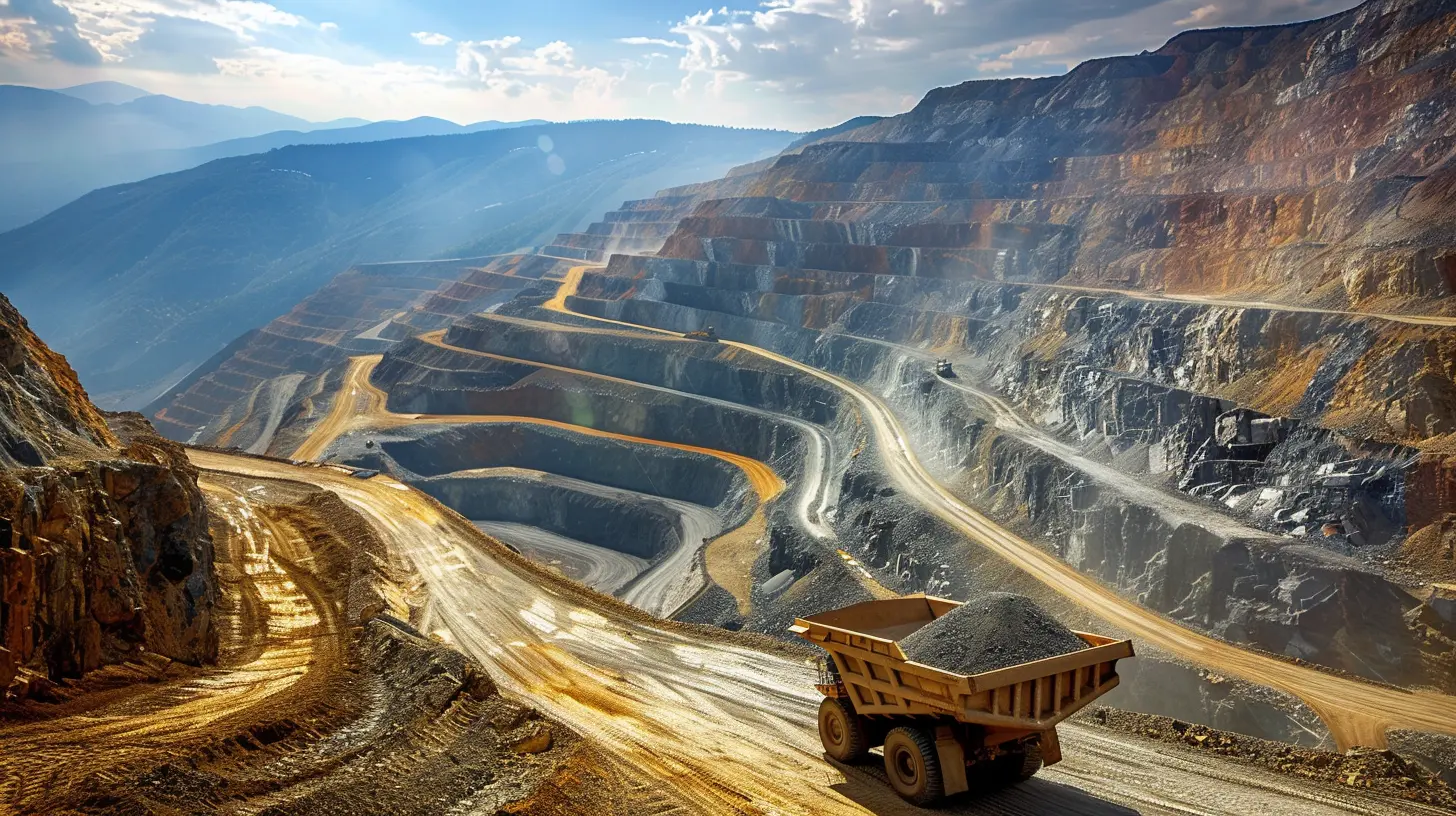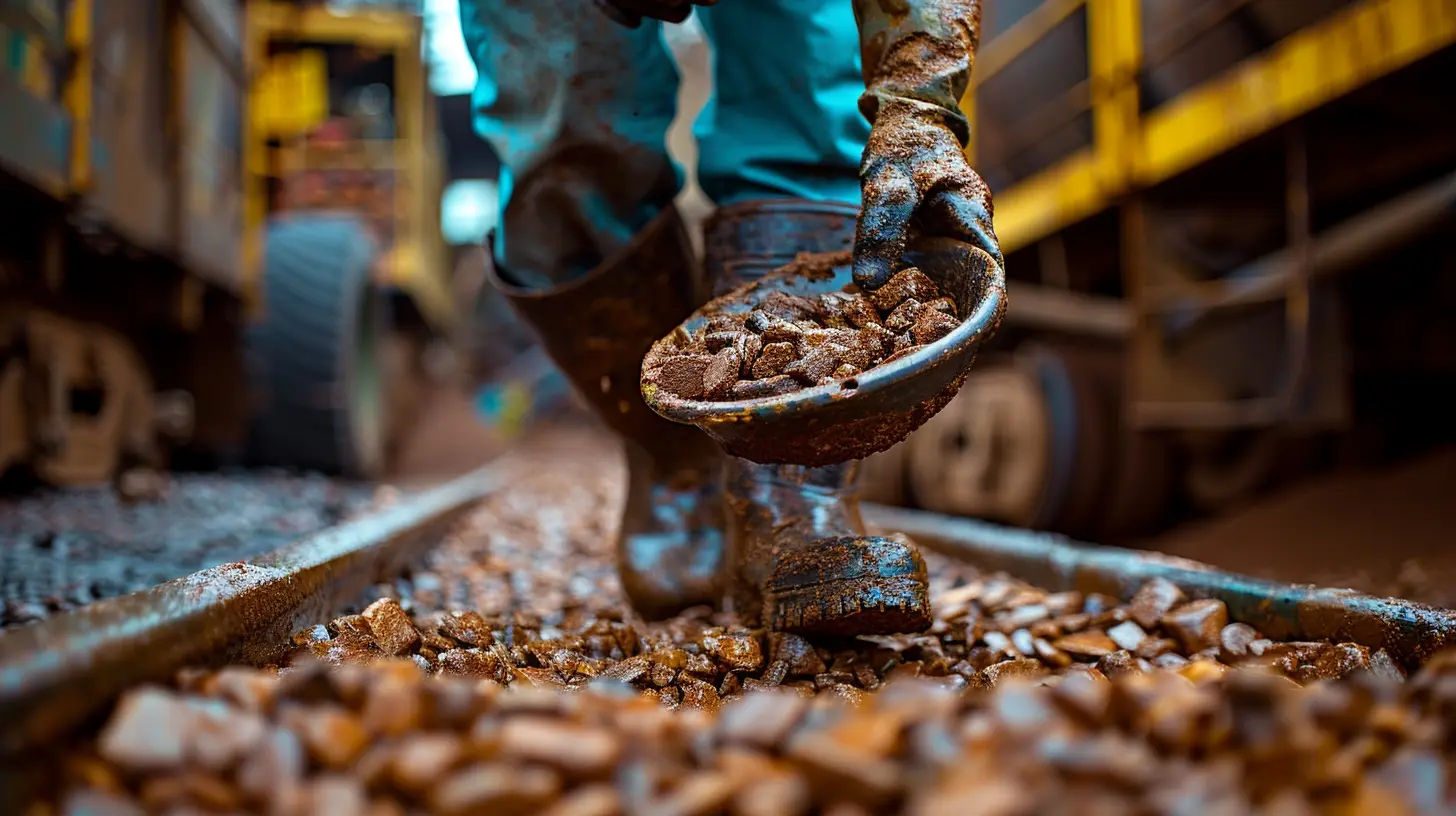Gold Rush or Trap? The Appeal of Speculative Commodities
26 July 2025
Ever found yourself captivated by the buzz around gold prices skyrocketing, or heard a friend brag about striking it rich with oil futures? You're not alone. Speculative commodities have a magnetic pull that even the most seasoned investors can find hard to resist. But is it really a gold rush... or just a cleverly disguised trap?
In this blog, we’re going to strip away the glitter and hype and get into the nitty-gritty of why commodities like gold, oil, and even coffee can lure investors in—and how to know when you’re stepping into an opportunity or walking into a minefield.
What Are Speculative Commodities, Anyway?
Let’s start simple. A speculative commodity is a raw material that people trade—with the hope that its price will go up. We're talking gold, silver, oil, natural gas, coffee, wheat, even pork bellies. Pretty much anything you can buy and sell with the intent to profit from price changes can become "speculative" if market participants are betting on price movements instead of using it for practical purposes.Now here’s where it gets spicy. These commodities often don’t behave like regular investments. They swing like a rollercoaster, driven by global events, supply issues, politics, and even the weather. And that volatility? It’s what makes them so appealing... and so dangerous.
The Glitter of Gold and the Lure of the Unknown
Ever heard the phrase “go for the gold”? It’s not just a motivational saying—it’s an investment philosophy for many. Gold, in particular, draws people in because it's seen as a "safe haven" asset. When the stock market tanks or inflation looms, investors often turn to gold to preserve their wealth.But here's the catch: gold doesn't generate income. There's no dividend, no interest. You're counting purely on appreciation. It feels secure, but it's like parking your car in a garage and hoping its value just magically increases over time.
For some, that gamble is part of the thrill. For others, it’s a false sense of security dressed in shiny metal.
Why People Fall for It: The Psychology Behind the Speculation
Let’s be real—speculative investing is as much about emotion as it is about logic. FOMO (Fear of Missing Out) plays a huge part. When you see headlines screaming "Oil Hits $100 a Barrel!" or TikToks promising “How I Doubled My Money With Silver Futures,” it’s hard not to want in.But speculation isn’t about strategy; it’s about reaction. People often jump into these markets without fully understanding how they work. They’re driven by hype, by what everyone else is doing, rather than thoughtful financial planning.
The problem? What goes up fast... often comes down even faster.
Supply, Demand, and the Butterfly Effect
Speculative commodities don’t exist in a vacuum. They’re wildly influenced by real-world events.Think of it like this: A storm hits the Gulf of Mexico and suddenly half the oil rigs are shut down. Boom—oil prices explode. A political spat in the Middle East? Another price surge. A drought in Brazil? Coffee prices jump.
These markets are ultra-sensitive, and a small flutter in one part of the world can create a seismic shift in prices. That’s great if you're on the winning side of a trade—but devastating if you’re not.
And because these variables are unpredictable, speculation becomes less about skill and more about luck. It's like gambling with a little more math.
The Role of Leverage: Double-Edged Sword
Here’s something most newcomers don’t consider: leverage. Many commodity trades are done with borrowed money. That means you can control a large position with a relatively small amount of cash.Sounds awesome, right?
Until the market moves against you. Then that small investment is wiped out in minutes, and you still owe the rest. It's like getting the keys to a Ferrari when you just learned to drive—speed is fun until you hit a curve.
Leverage magnifies both gains and losses. And unfortunately, it often attracts people chasing quick riches without realizing how quickly fortunes can flip.
Real-Life Cautionary Tales
Let’s not sugarcoat it—many people have lost big-time in speculative commodities.Remember when oil prices went negative in April 2020? That wasn’t a typo. Due to a perfect storm of plummeting demand and no available storage, traders literally paid others to take oil off their hands. Investors who didn’t understand how futures contracts worked got crushed. Some lost their entire savings.
And then there’s the GameStop-style crowd jumping into silver because of internet chatter. Prices surged briefly—and then came crashing down. Those who got in late were left holding the bag.
Speculation may look like a shortcut to wealth, but it often ends as a lesson in humility.
So, Is There Ever a Right Time to Speculate?
Here’s the deal: speculation isn’t inherently bad. In fact, some savvy investors make a living from it. But—and this is a big but—you need to know what you're doing.Want to dip your toes in? Follow these ground rules:
- Know your risk tolerance. If you can’t sleep at night wondering what gold will do tomorrow, this game isn’t for you.
- Use money you can afford to lose. This isn’t your emergency fund or your kid’s college tuition.
- Do your research. Read up on supply chains, seasonal effects, political influences. Knowledge is your armor.
- Start small. Test the waters before diving in.
- Set limits and stick to them. Know when to get out—whether things go your way or not.
Remember, speculation is like fire. It can cook your dinner or burn your house down. It all depends on how you use it.
Alternatives to Consider
If the thought of speculative commodities gives you anxiety (and honestly, that’s fair), there are smarter, safer ways to get exposure to these markets.- Commodity ETFs: These are exchange-traded funds that track the price of commodities, without the crazy leverage of futures. Think of it as a gentler rollercoaster.
- Mining and energy stocks: Own shares in companies that produce gold, oil, etc. You get dividends and more stability.
- Diversified mutual funds: Some funds include commodities as part of a balanced portfolio. Lower risk, lower reward—but a lot more peace of mind.
Investing doesn’t have to be thrilling to be effective. Sometimes boring is beautiful.
The Bottom Line: Know What You're Chasing
The appeal of speculative commodities is undeniable. There's excitement, adrenaline, the chance of big profits. But with great potential comes great risk. It’s not called “speculative” for nothing.Ask yourself: Are you investing? Or are you gambling?
There’s nothing wrong with a little risk now and then—as long as it’s calculated and not compulsive. Educate yourself, stay grounded, and remember: the goal of investing isn’t to get rich quick... it’s to get rich smart.
Final Thoughts
So, back to our original question: Gold rush or trap?Honestly, it can be both.
Speculative commodities offer a glimpse into the raw, wild heart of the financial world. They can reward the well-prepared and humble the overconfident. But they are not for the faint-hearted or the uninformed.
If you’re drawn to the shiny promise of gold or the sizzle of oil, just make sure you’re wearing armor before entering the arena. Because in this game, the stakes are high—and the traps are real.
all images in this post were generated using AI tools
Category:
Speculative InvestingAuthor:

Harlan Wallace
Discussion
rate this article
1 comments
Candace Good
Speculative commodities: like a treasure map—exciting, but watch for the 'X' that marks the loss!
August 17, 2025 at 6:21 PM

Harlan Wallace
Thank you for your insightful comment! Speculative commodities do indeed carry both potential rewards and risks—it's essential for investors to tread carefully and be aware of the pitfalls.


